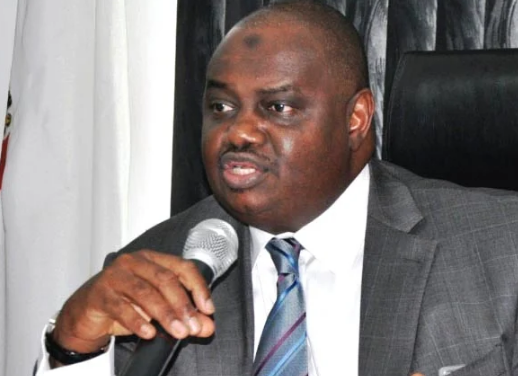Ibrahim Lamorde, a former chairman of the Economic and Financial Crimes Commission (EFCC), is dead.
Premium Times first reported his death on Sunday.
Elanza News understands Lamorde died around 3am local time in Cairo, Egypt, three days after undergoing a surgery.
Family sources said he was in Cairo on a different issue but decided to run a routine medical checkup.
The doctors reportedly picked up an ailment and advised him to do a surgery.
Although the surgery was deemed successful, he reportedly developed complications three days later and died, family sources told TheCable.
Lamorde was the EFCC chairman between 2012 and 2015.
He was appointed in an acting capacity as chairman of the anti-graft agency on November 23, 2011 following the removal of Farida Waziri by then President Goodluck Jonathan.
Lamorde was confirmed third substantive chairman of the commission by the senate on February 15, 2012.
He was born on December 20, 1962, in Mubi, Adamawa state, and attended Ahmadu Bello University Zaria, graduating with a bachelor of arts degree in sociology in 1984.
He joined the Nigeria Police Force in 1986 and retired as a deputy inspector-general.
Lamorde was made pioneer director of operations when the EFCC was created in 2003.
He was acting chairman in January 2008, a position he held until Waziri was appointed chairperson and confirmed by the senate in June 2008.
Lamorde returned to the EFCC in 2010 as director of operations, replacing Stephen Otitoju.
On November 23, 2011, Lamorde, who was at the time an assistant commissioner of police (ACP), was again appointed acting chairman.
He was made substantive chairman of the agency on February 15, 2012, a position he held until November 9, 2015, when former President Muhammadu Buhari replaced him with Ibrahim Magu.











